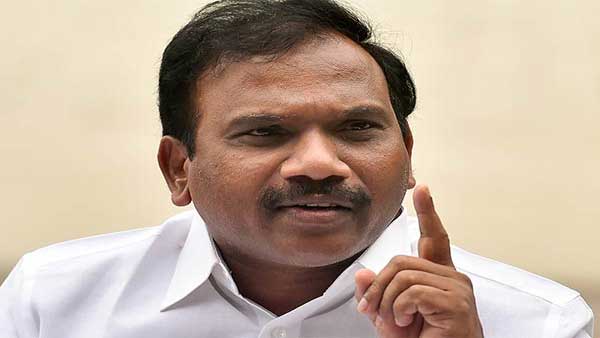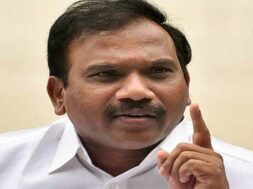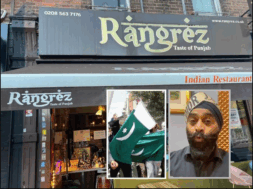
Manas Dasgupta
NEW DELHI, July 4: The ruling Dravida Munnetra Kazhagam (DMK) has sparked off a major controversy with a senior party leader and former union minister threatening to seek an “independent Tamil Nadu” if the centre did not provide the southern state “state autonomy.”
The threat came from A Raja, a union minister in the previous UPA cabinet under Manmohan Singh, in the presence of the Tamil Nadu chief minister M K Stalin who was in the dais.
Addressing a party meet of representatives of urban local bodies held at Namakkal in western Tamil Nadu, Raja implored Prime Minister Narendra Modi and Union Home Minister Amit Shah to provide ‘State autonomy’ to Tamil Nadu, and not push them to seek an independent country.
“Though the icon of the Dravidian movement, Thanthai Periyar stood for an independent Tamil Nadu, the DMK moved away from it,” Raja said. The party, though accepted Periyar, backed integrity and democracy and said, ‘long live India’ and the party continues to stick to that line.”
“I am telling Amit Shah and the Prime Minister with utmost humility, I implore you in the presence of (our) leaders on the dais, our Chief Minister is journeying on the path of Anna (C.N. Annadurai, former Chief Minister and DMK founder), do not push us on the path of Periyar. Do not make us seek a separate country, give state autonomy and we will not rest till then,” he said.
Raja’s remarks invited sharp criticisms in the social media with several hitting out at him for ‘separatist’ comment while some others supported it. The Tamil Nadu BJP vice-president Narayanan Tirupathi condemned Raja’s remark as ‘blatantly divisive’. However, it was not a matter of surprise as the DMK is known for its ‘divisive’ attitude. “But what is shocking and surprising is that Chief Minister M.K. Stalin remained a mute spectator. I condemn his silence. He has taken oath of office, affirming allegiance to the Constitution.” Tamil Nadu’s ruling party should understand that “India has created States for its administrative purposes and that is precisely what the Constitution says,” Narayanan said.
The BJP national general secretary CT Ravi called the DMK leader’s statement as the regional party’s acceptance of failure of its Dravidian politics. Ravi, who is in charge of the BJP in Tamil Nadu, said the BJP’s growth in the state has turned the heat on the ruling DMK there. “If they (DMK) are talking such things in Tamil Nadu after doing five decades of politics, it is clear that BJP’s growth is turning the heat on them. Realising that their ideology has failed, they are talking about such things,” Ravi said in Bengaluru.
Rejecting criticisms against the remark, DMK spokesperson Constantine Ravindran said Raja had made it amply clear that the party travelled on the path of Anna, fully supporting India’s integrity and the principles of democracy. “The message sought to be conveyed by Raja was that Tamil Nadu should be given autonomy to work towards development and uphold its rights as enshrined in the Constitution,” Ravindran said.
Tamil Nadu Governor R.N. Ravi has not given his assent to several Bills passed by the State Assembly, he said and wanted to know if hampering development was the idea of the Union Government. Under the BJP-led dispensation, the State government does not have any rights whatsoever, he claimed.
Raja’s comment comes against the background of DMK sticking to the term ‘Ondriya Arasu’ (Union government) in Tamil to refer to the Centre ever since it assumed office in May 2021 in the State, though ‘Mathiya Arasu’ was relatively a more common usage for the centre. The DMK has stuck to ‘Ondriya Arasu’ to underscore ‘federalism’ principles and to push ‘State autonomy.’ The DMK had also said India is a Union of States according to the Constitution.
Be it the BJP or Right Wing activists, they have time and again claimed that harping on ‘Ondriya Arasu’ usage had traces of divisive tendencies. Such a mindset looked at the country as an artificial structure, put together by the British. India is however, culturally and spiritually a single entity though it might have had various rulers through the ages.














